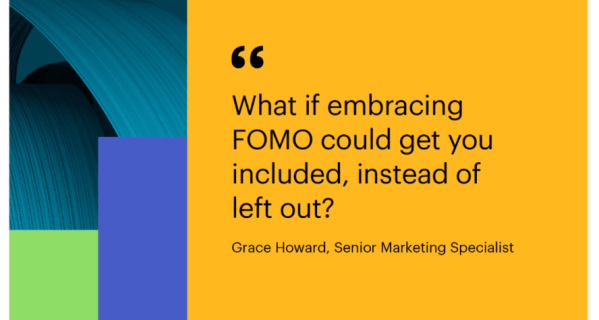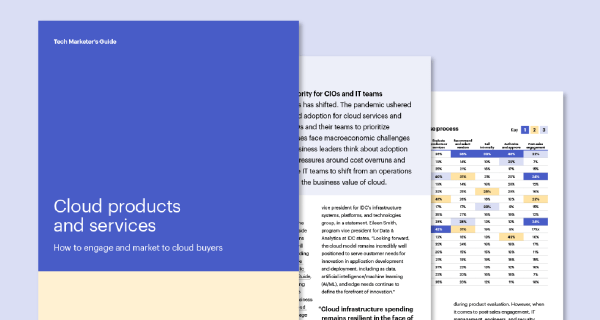I was born in 1999, positioning me as part of Generation Z, the generation that grew up online. At age 6, my favorite games were Webkinz and Club Penguin. At age 11, I was running my own Instagram and Facebook accounts. And at age 21, amid a global pandemic, my college experience was completely placed online.
Gen Z consists of those born between 1997 and 2010, placing me at the older end. This means younger members of Gen Z have even more profoundly grown up in the digital world. Take for example, my younger brother born in 2007, who is the same age as the iPhone. He does not ever remember a time when Blackberry was the ‘cool kid’ phone.
Which brings me to the point of this blog. Earlier this year, during a Foundry marketing all-hands meeting, the topic came up – what generation do you belong to?
In this conversation, we poked fun at Baby boomers for struggling with iPhones, and at Millennials for using Instagram reels instead of TikTok. However, there was a much more serious conversation to be had. Foundry’s 2023 Role and Influence of the Technology Decision Maker research had just come out. This year’s study was the first to include a Gen Z breakout in the results, along with Baby boomers (born between 1946 and 1964), Gen X (1965 – 1980), and Millennials (1981 – 1996).
The generational divide
The research found that content preferences among the older age groups are fairly consistent, but they change radically with Gen Z respondents. Although technology content sites are the number one source for everyone, Gen Z lists our other top preferences as online communities, peers outside the company consulted via electronic media, infographics, and podcasts. And just one of those sources – online communities – made the top-five list in any other age group (Boomers listed them fifth).

Older generation groups tend to have fairly consistent content preferences, suggesting that they may have grown up with certain types of media and are comfortable with those formats. In contrast, my generation’s preferences indicate a departure from traditional content sources, reflecting the impact of our unique exposure to technology and an upbringing in the digital age.
Take buying a pair of sneakers for example, or rather how that buying process varies by generation. When my parents go to buy a pair of sneakers, they might browse online, or go to the mall, and that is the extent of their journey. My journey is a bit different – rather I look at TikTok and see what others have, I check what influencers are wearing, I might post on Facebook asking friends for advice, and I browse the Reddit community R/RunningShoeGeeks (not kidding I love this subreddit). Bottom line? The buyer’s journey is evolving along with the digital age.
The bigger, more serious conversation to be had – what does this mean for B2B marketers?
Looking ahead
Before we know it, Gen Z’ers will play a pivotal role in the buyers’ journey, requiring every marketer, regardless of their generation, to include our preferences.
This means it’s time to get a head start so as Gen Z’s representation in the buyers’ journey grows, your organization has already adapted. Based on my perspective as a B2B Gen Z marketer, I have a few ideas on how we can get started:
Experiment with new channels
There is no time like the present to begin experimenting with new channels for content delivery. Channels like TikTok, and Reddit are on the rise with Gen Z, making these great options to begin exploring. Try starting with organic efforts, see how those perform, then begin experimenting with paid ads, or influencer marketing. This is your chance to be creative!
Podcasts earning fifth place among Gen Z’s preferences, are also a great channel to start with. Foundry found that 94% of Gen Z ITDMs listen to business related podcasts, and 40% have used them to find out about emerging technology. This trend will only continue to grow as the Gen Z matures. In fact, I often found myself turning to Spotify and browsing the top podcasts speaking on B2B and SaaS trends.
Out of all the generations, Gen Z is the most comfortable with technological developments, suggesting trends will continue to shift as new technology emerges. To combat this, encourage conversation among leadership around recent technologies like machine learning and AI tools. Embrace innovation and stay open to the evolving landscape of content consumption to effectively engage with Gen Z.
Invest in thought leadership and encourage conversation
Online communities rank as the second most consumed information sources by Gen Z. This suggests a desire for authentic connections and genuine experiences among our generation. Gen Z is sick of linear marketing, we don’t want to download your content. Instead, we want information at our fingertips in a second, and to have real conversations about what’s working, and what is not.
Tap into this opportunity by identifying social media groups, platforms, or key industry forums like CIO Tech Talk Community. Begin by participating in discussions, sharing valuable insights, and positioning your brand as a trusted source of information. Also attend events, offering a real face-to-face connection that humanizes your brand and shows us that there are real people behind it. Despite Gen Z’s reliance on technology, we care deeply about forming real relationships, trust, and authenticity. We care about brands and often buy from brands that we know our peers and community trust. Take me, for example. Every morning that I’m on my way to the office, I refuse to buy anything other than a Starbucks latte. And when a big celebration rolls around, my go-to champagne is Veuve Clicquot. Why? Because I trust these brands. I know they’re consistent, and I’ve seen my friends enjoy them too. That trust goes a long way for Gen Z.
Talk to your Gen Z team members
Engaging with your Gen Z team members is not just a valuable opportunity but also a strategic advantage. Many Gen Z professionals, including myself and those in entry-level roles like specialists and associates, are eager to contribute their ideas, passions, and inspirations to the workplace. Ask how we are doing research, ask what channels we prefer to use, and ask what content we are consuming. Perhaps it’s a good idea to send out a quarterly survey to the younger team members at your organization. This could spark conversations around new ideas, campaigns, and messaging that resonates with the growing Gen Z buyer group.
We are the next era of buyers, and based on Foundry’s findings, change does not seem to scare us. Talking to your Gen Z team members opens the door to a wealth of knowledge and a fresh perspective on various aspects of your organization.
Gen Z rising
It should be noted, however, that us Gen Zers comprised only 6% of the respondent base compared to 41% of GenXers, who are in the prime of their careers. While Gen Z is currently in the minority, time moves quickly. Gen Z is rising – the younger part of our generation is still in grade school, while on the other hand, many of us in our later twenties are already climbing the corporate ladder.
As marketers, we’re always looking for the best and new ways to capture buyers’ attention. And if we want to continue doing so, we cannot ignore these stats. The buyer’s journey is changing and changing fast, and to stay relevant, we must adapt.
Of course, keeping in mind that sources for marketing information may differ from those for information technology, and that as these professionals mature into their roles, their information preferences may shift depending on the type and level of information needed in their advancing roles.






